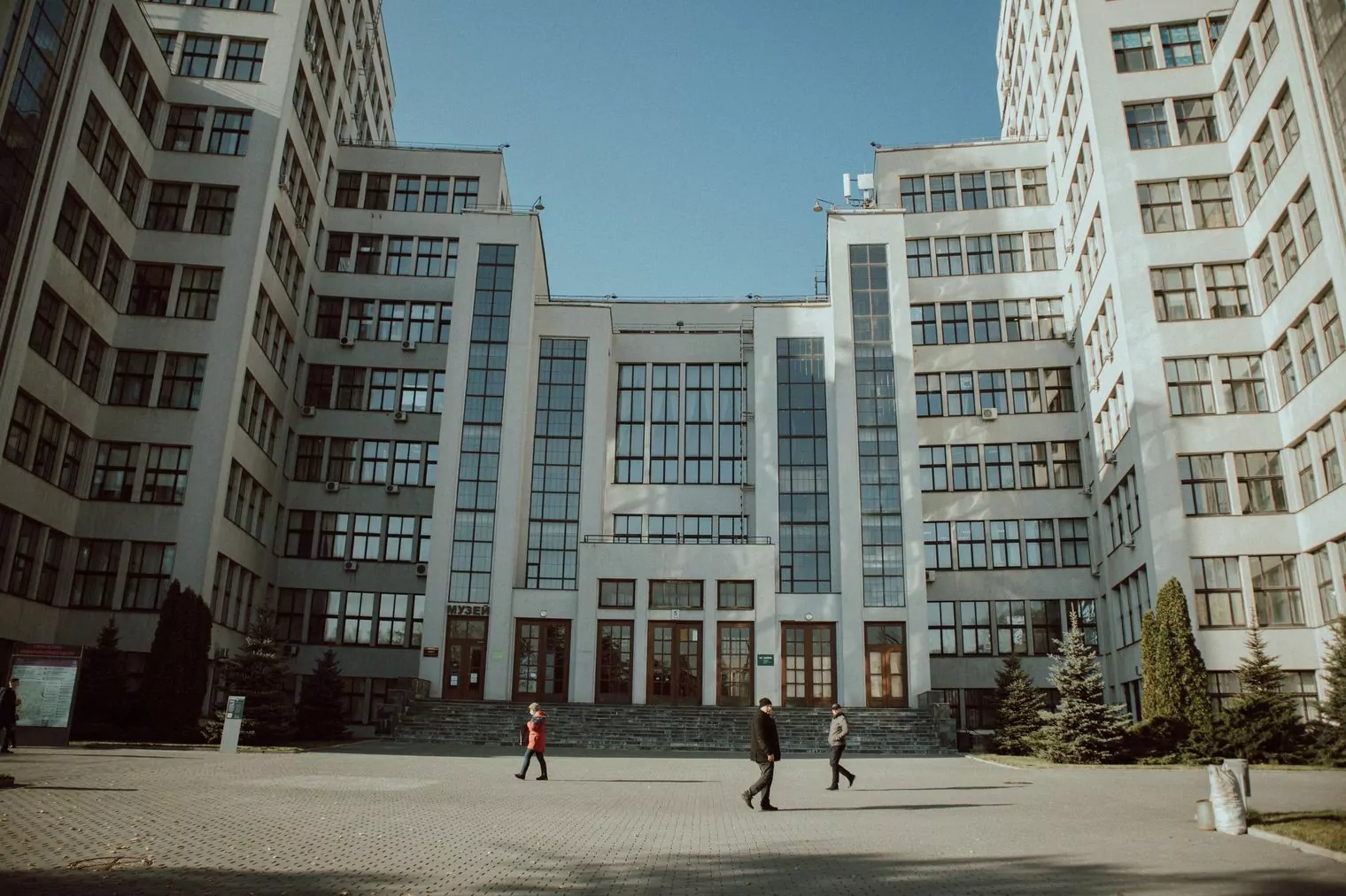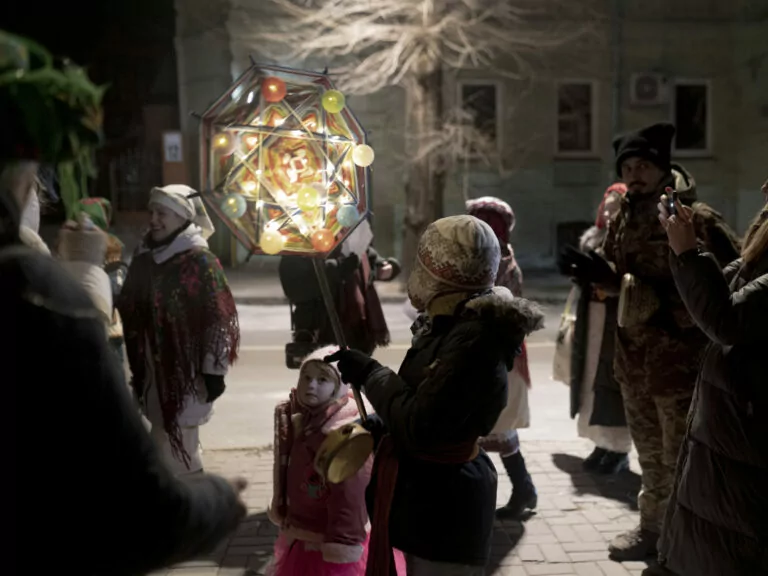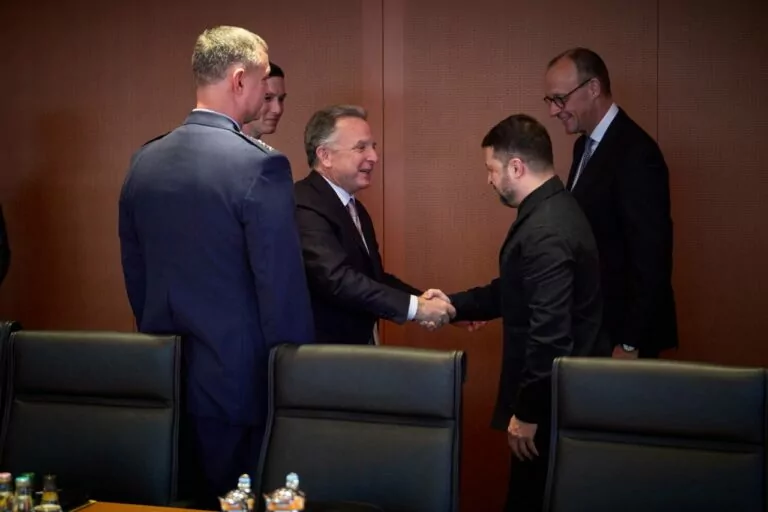“How to spell Kharkiv or Kharkov”, “what language do they speak in Kharkov”, “is Kharkiv the same as Kharkov”, and other Google searches have boomed since Feb. 24. That very morning the Kharkiv citizens woke up with the sound of explosions or the telephone calls from their panic-stricken relatives. The full-scale war started, and the name of the city became known all over the world.
Is it Kharkov or Kharkiv
One may say, technically both variants are correct.
“Kharkiv” comes from the Ukrainian name of the city, “Харків”.
“Kharkov” is the transliteration of the Russian “Харьков”.
But since the Russian attempts to capture the east of Ukraine started in 2014, this question has become an important philological, political, and philosophical issue.
In July 2019, the Ministry of Foreign Affairs of Ukraine published an open letter to all the countries and organisations, asking them “to review and where necessary, amend their usage of outdated, Soviet-era placenames when referring to Ukraine”. Kharkiv was on the list of the most misspelled names.
“Ukraine has been an independent sovereign nation for more than 27 years but the Soviet-era versions of many geographic names stubbornly persist in international practice. The transliterations of the names of cities, regions, and rivers from the Cyrillic alphabet into Latin are often mistakenly based on the Russian form of the name, not the Ukrainian,” informed the letter.
The Ministry of Foreign Affairs referred the international community to Resolution X/9. Romanization of Ukrainian geographical names, which recommended the “Romanization system in Ukraine” as the international system for the transliterations of Ukrainian geographical names. The document states, that “the proper names (geographical names, names, and surnames) are rendered by means of the Latin alphabet in accordance with unified rules of transliteration”.
So, when you transliterate the Ukrainian proper name Харків, it`s Kharkiv, not Kharkov.
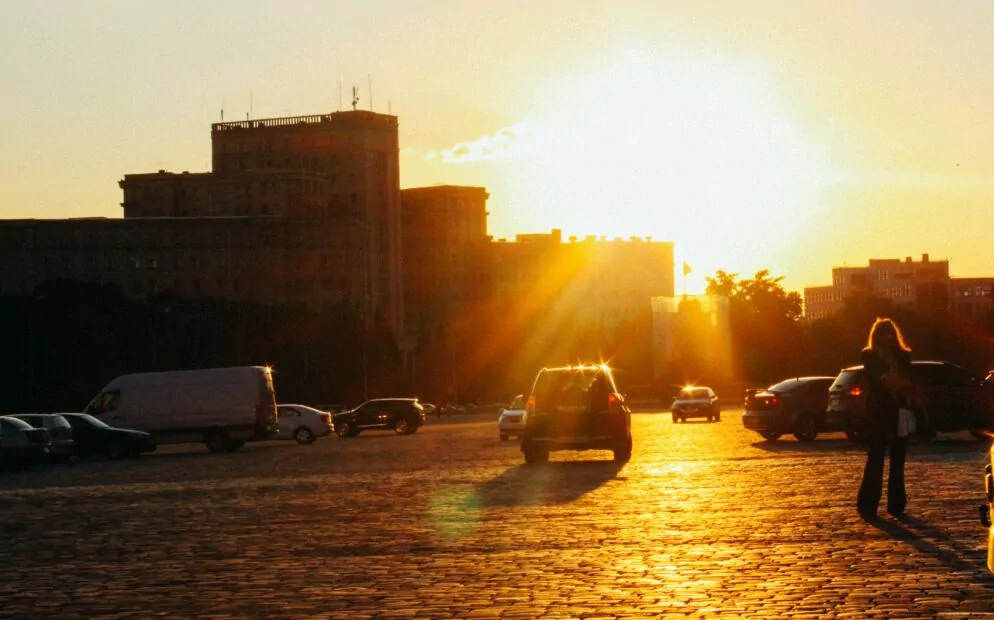
What language is spoken in Kharkiv
Kharkiv is just a few dozen miles from the border with Russia. Culturally inheriting the Soviet Union, the city has long been almost entirely Russian-speaking. Moreover, the Ukrainian language has been gradually and purposely supplanted by Russians since the tsar`s and patriarch`s orders in the 17th century to the mass closure of Ukrainian schools in Soviet times.
Before the annexation of Crimea and the separatist rumblings in Kharkiv in 2014, many people felt neutral. They didn`t support Russia, but couldn`t call themselves passionate patriots.
“Culturally, Moscow felt like the centre of the universe. But when I finally made it to a gallery there in 2012, I was horrified. They were obnoxious and patronising about Kharkiv and Ukraine, and frankly, I thought: fuck them,” confessed to The Guardian the famous Kharkiv street artist Hamlet Zinkivskyi.
In 2014, despite the attempts to proclaim the “Kharkov People’s Republic” made by the dummy “locals” and some pro-Russian citizens, the city chose to remain Ukrainian. It was the first time for some citizens to realise themselves as conscious Ukrainians, and these shifts were reflected in Kharkiv`s lifestyle. More and more young people chose to switch to the Ukrainian language on social media and in everyday life. Though most of the Kharkiv locals remained Russian-speaking, identifying themselves as Ukrainians.
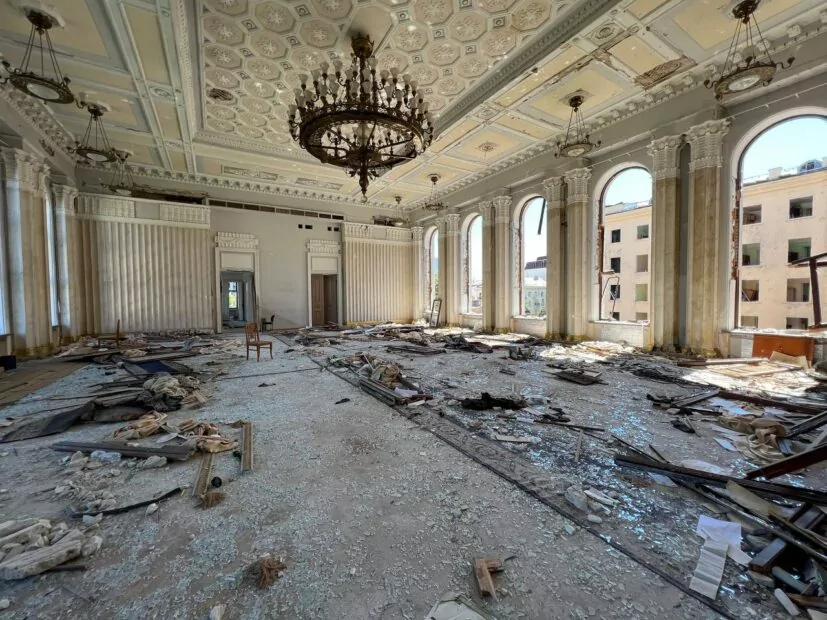
The full-scale war that started in 2022 left no place for neutrality. Since February more and more citizens have been switching to the Ukrainian language.
“Frankly speaking, I haven’t met people who have concerns about this situation or try to justify the Russians. The city is obviously changing. More people are speaking Ukrainian, and it’s not about the language, but about the views. It’s not the case that you speak the language to obey the rules, it doesn’t relate to the language itself. Actually, it’s a marker of ideology, the worldview, the values,” commented to “Observatel” Serhiy Zhadan, a prominent Kharkiv poet, a nominee for the Nobel Prize in Literature.
Zhadan emphasised the importance of choosing the language voluntarily because people want to identify themselves as Ukrainians.
For a 32-year-old Anna Che, an IT specialist from Kharkiv, switching to Ukrainian isn’t crucial. She and her husband are volunteering, helping Ukrainian soldiers on the frontline. The young woman says many of her friends switch to Ukrainian on social media and still speak Russian in everyday life, and for those fighting for Ukraine`s freedom on the frontline, the language problem is the least important one.
“Frankly speaking, I don’t think it matters much what language you speak if you are fighting for Ukraine. Of course, if you are not a celebrity, politician, or influencer representing the country. But Kharkiv in English is definitely Kharkiv only, not Kharkov!”, said Anna.
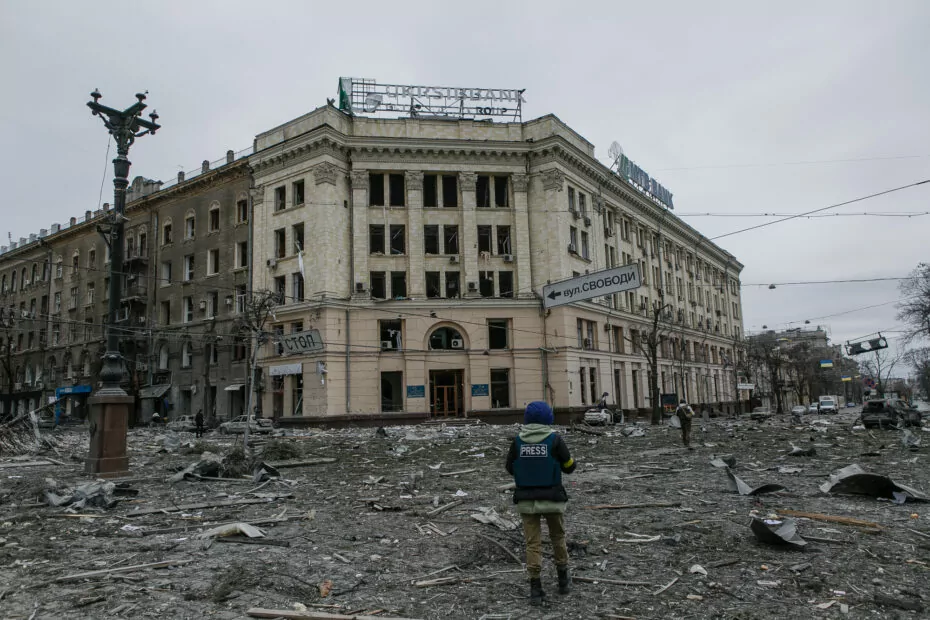
The origins of the name “Kharkiv”
It is said that the origin of the city’s name can be traced back to the Cossack Khark (Kharko or Chariton), who was the leader of Ukrainian settlers in the middle of the 17th century. This story is a legend, as is, perhaps, the existence of Khark the Cossack himself.
Some historians say that Kharkiv is a transformed name from “Sharukhan”, the cumin capital that was located on the lands of the modern city.
A majority of the specialists consider the most prosaic version of the name`s origins, which says it comes from the name of the river Kharkiv. The first mentions of this river date back to 1627, but the history of its name remains unknown.
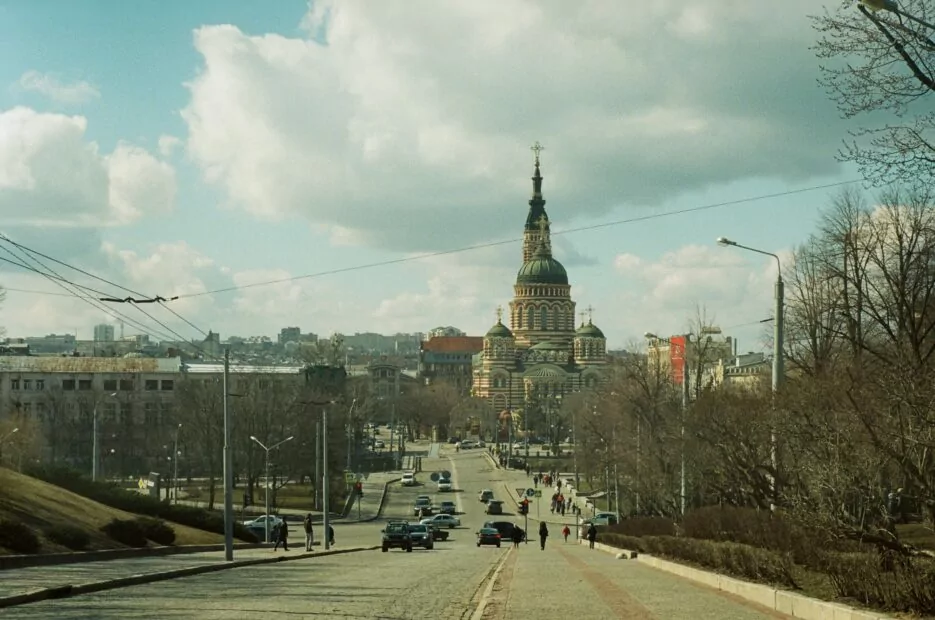
Kharkiv or Kharkov: why does the spelling matter
“Unfortunately, I grew up speaking Russian, but it’s not pleasant to speak the same language as the army that is destroying whole areas of our country,” said the artist Hamlet Zinkivskyi to The Guardian. And many Kharkiv residents feel the same.
The geopolitical and cultural variations inside Ukraine were one of the feigned reasons why Russia attacked Kharkiv and the whole country. Instead, the invasion more than anything reminded the people who they were, and brought the different parts of Ukraine together, making them stronger than ever before.
“Under the Russian empire and later the Union of Soviet Socialist Republics (USSR), Russification was actively used as a tool to extinguish each constituent country’s national identity, culture, and language. In light of Russia’s war of aggression against Ukraine, including its illegal occupation of Crimea, we are once again experiencing Russification as a tactic that attempts to destabilize and delegitimize our country. You will appreciate, we hope, how the use of Soviet-era placenames – rooted in the Russian language – is especially painful and unacceptable to the people of Ukraine,” wrote The Ministry of Foreign Affairs in 2019.
With time this thesis has become even more relevant. The residents of Kharkiv choose to be Ukrainians every day, and every day they fight for the right to be who they are. They stand for their city to remain “Kharkiv”, not “Kharkov”. Kharkiv, which means a free, strong, glorious, Ukrainian city. An independent subject of international relations, not an object of the colonizer`s view. And it’s essential to respect and support this right, starting with the correct spelling of the city`s name.
This material was developed by Gwara Media as part of the IWPR program “Supporting regional media of Ukraine during the war” with the support of the European Union, the Ministry of Foreign Affairs of Norway, and the Ministry of Foreign Affairs of Great Britain.
The content of the material is the sole responsibility of Gwara Media. It does not reflect the views of the European Union, the Ministry of Foreign Affairs of the Kingdom of Norway, the United Kingdom Government or the Institute for War and Peace Reporting.
